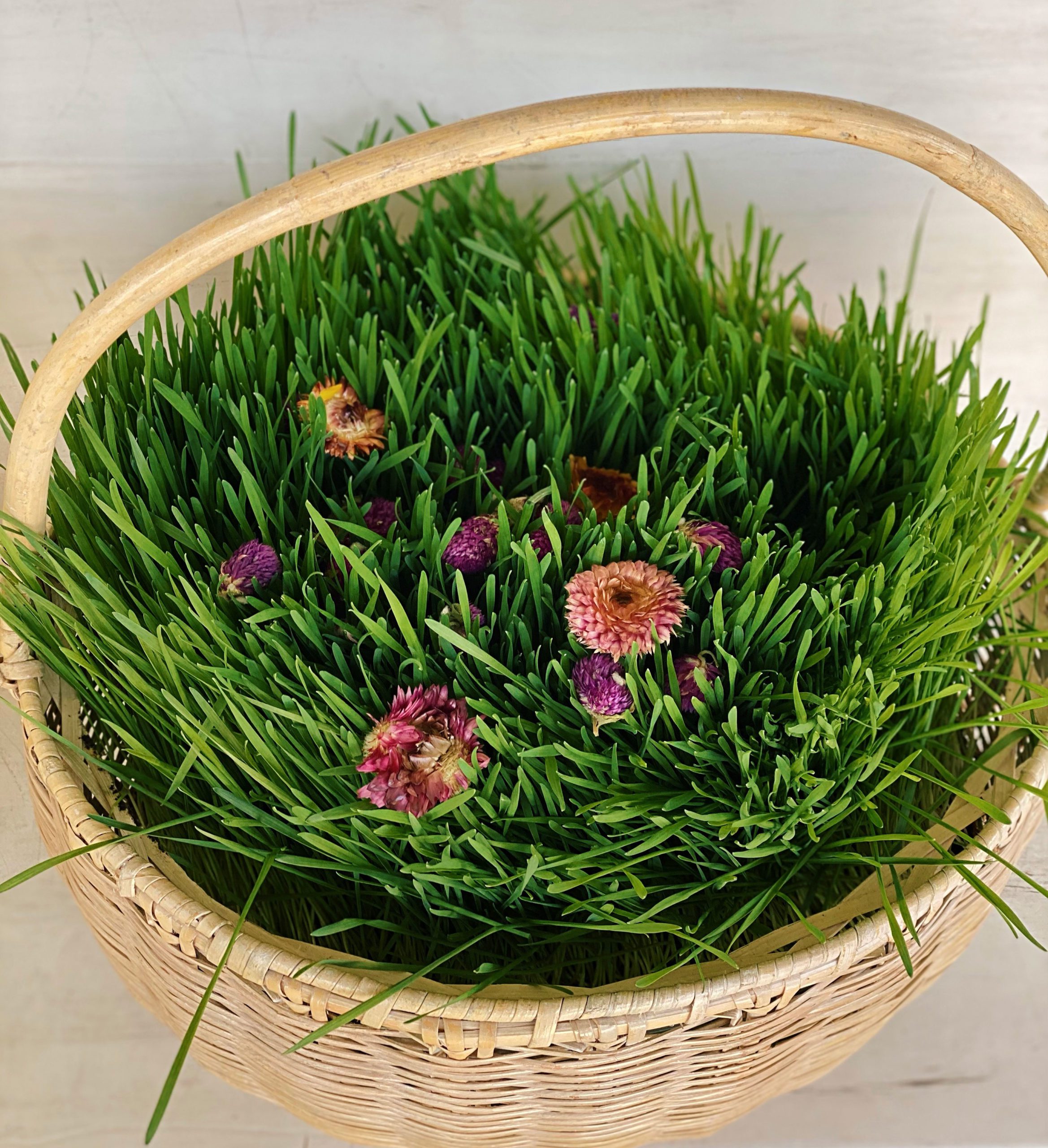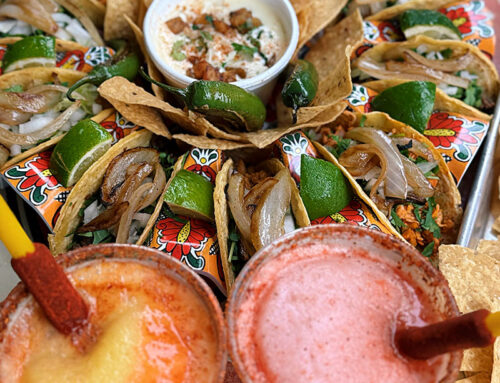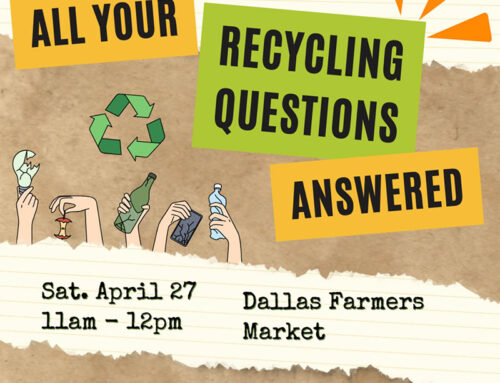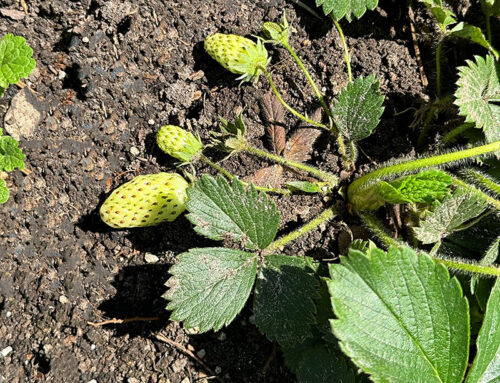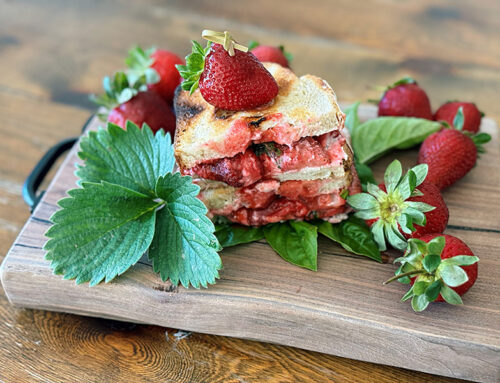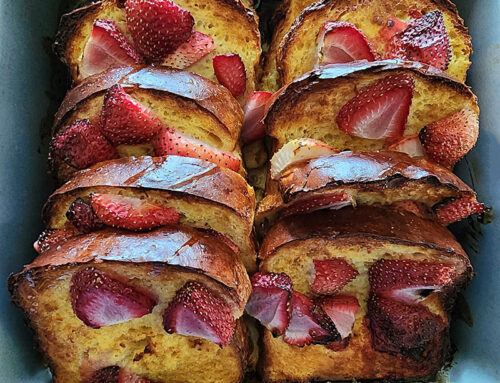Check out these tips for eco-friendly Easter celebrations that everyone will love!
CHOOSE A REUSABLE BASKET
Rather than purchasing a new, plastic Easter basket, consider shopping at your local thrift store or second-hand shop instead. For a truly unique option, shop with local vendors at the farmers market that offer handmade baskets such as Designed by Society or Samco. You’ll prevent waste by choosing a basket that can be cherished and repurposed for years!
SKIP THE PLASTIC GRASS
Easter egg baskets are typically filled with shreds of plastic grass, which is non-biodegradable and easily gets caught in unwanted habitats. For a greener alternative, try shredding recycled paper (make a festive filler by using colorful junk mail) or use Choca Loca Designs’ unique vintage dyed bandanas to add even more color. Flats of wheatgrass from Skye Farms are a locally grown alternative that can keep on growing without the waste!
WHAT ABOUT PLASTIC EGGS?
Using plastic eggs can be extremely wasteful, especially when you’re purchasing new eggs each year. Instead, try biodegradable goody bags, a compostable Easter egg option, use wooden eggs, or try wool felted eggs. If you must use plastic eggs, store them in a safe place so you can reuse them each year
TRY NATURAL DYES FOR EASTER EGGS
Try natural dyes from fruits, vegetables, and spices you find in your kitchen!
- LAVENDER – Red cabbage leaves chopped and simmered
in 8 oz water + 2 oz vinegar for 20 minutes. Add hardboiled egg whites and simmer for 5 minutes or
until desired darkness is reached. - PINK – Red beet skins and stems chopped and simmered in 8 oz water + 2 oz vinegar for 20 minutes. Add hardboiled egg whites and simmer for 3 minutes or until desired darkness is reached. Note: Beets dye quickly and will turn eggs bright red if left in longer!
- YELLOW – 2 tablespoons turmeric powder in 8 oz water + 2 oz vinegar for 20 minutes. Add hardboiled egg whites and simmer for 5 minutes or until desired darkness is
reached. - ORANGE – Yellow onion skins in 8 oz water + 2 oz vinegar for 20 minutes. Add hardboiled egg whites and simmer for 5 minutes or until desired darkness is reached. All materials can be composted after you are done!
BUY FREE-RANGE, ORGANIC EGGS
When purchasing several dozen eggs for dying, it can be tempting to reach for the cheapest bulk option. However, free-range hens that are fed an organic diet are more nutritious and better for the planet. Find delicious free-range eggs at The Shed and Market Provisions at The Market.
COMPOST EGGSHELLS
Easter time means more eggshells. Don’t throw out: egg shells are one of the easiest foods to compost! Crush up the shells and use them as a great inexpensive fertilizer for your garden.

